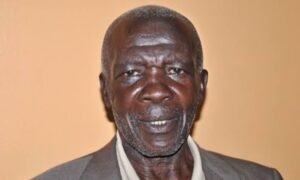What you need to know:
- Introduction Saltwater intrusion in coastal Bangladesh is taking a severe toll on the health of women who rely on these regions for their livelihoods.
- Call to Action Raising awareness about the health risks posed by saltwater and advocating for equitable access to healthcare are crucial steps towards improving the lives of women in coastal Bangladesh.
Introduction Saltwater intrusion in coastal Bangladesh is taking a severe toll on the health of women who rely on these regions for their livelihoods. This article explores the multifaceted impacts of saltwater exposure on their health and wellbeing.
Saltwater Intrusion: A Daily Struggle In coastal Bangladesh, women like Jamena Begum spend long hours in saltwater while catching shrimp, a primary source of income. This exposure, often nine to ten hours a day, poses significant health risks.
Health Impacts of Saltwater Exposure Women endure various health issues due to prolonged contact with saline water. This includes urinary tract infections, skin diseases, and complications during pregnancy such as hypertension and miscarriages.
Challenges in Accessing Clean Water With freshwater sources contaminated by saltwater intrusion, accessing clean drinking water becomes a daily challenge for coastal communities. Many resort to purchasing water, which further strains their economic resources.
Research and Studies Studies highlight that over half of women in some regions report reproductive health problems linked to saline water exposure. Issues range from menstrual irregularities to severe conditions necessitating surgical interventions.
Environmental and Climate Factors Climate change exacerbates saltwater intrusion, leading to higher salinity levels in groundwater and surface water. This environmental challenge disproportionately affects vulnerable populations in coastal areas.
Community Response and Initiatives Efforts such as rainwater harvesting and desalination projects aim to mitigate the impact of saltwater intrusion. However, these initiatives often fall short of addressing the comprehensive health needs of affected women.
Government and NGO Efforts The Gender-Responsive Coastal Adaptation (GCA) project, supported by UNDP, provides some relief by promoting rainwater harvesting and distributing water tanks. Yet, many women still lack adequate healthcare access.
Personal Stories and Realities Women like Sarbanu Begum on Gabura Island face dire choices due to healthcare costs associated with saltwater-related illnesses. For many, access to proper treatment remains out of reach.
Conclusion The cycle of dependence on saltwater for livelihoods juxtaposed with its detrimental health impacts underscores the urgent need for sustainable solutions. Addressing these challenges requires concerted efforts from both local communities and international stakeholders.
Call to Action Raising awareness about the health risks posed by saltwater and advocating for equitable access to healthcare are crucial steps towards improving the lives of women in coastal Bangladesh.

Do you have a story or an opinion to share? Email us on: info@falconposts.com Or follow the Falconposts on X Platform or WhatsApp for the latest updates.












